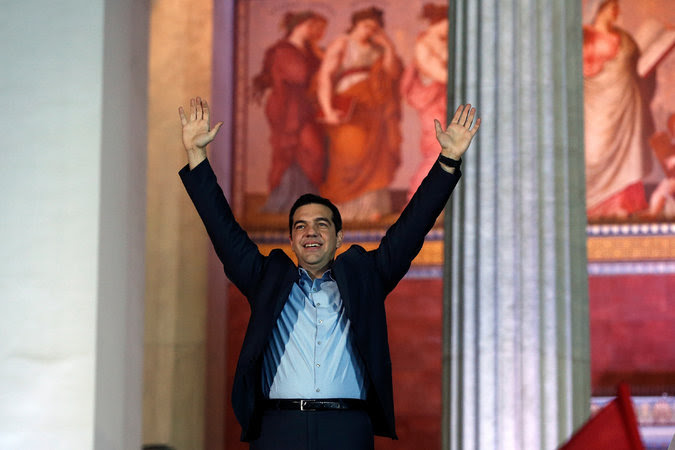As the Jewish New Year of 5776 entered, news arrived that offered cause for the gravest concern. In England the British Labor Party had just elected Jeremy Corbyn, a viciously anti- Zionist agitator who has lent moral support to Hamas and Hezbollah, has maintained close associations through the years with antisemites and Holocaust deniers and is unapologetic in his embrace of the local Muslim Imams who call for the destruction and conquest of the West. This is, of course, coupled with the likely admission, in the near future, of hundreds of thousands of Muslim refugees into European cities, which will only exacerbate the tensions in those societies between secular society and its unassimable Muslim minorities, thereafter, inevitably, spurring further attacks on Jews; And of course the Obama Administration has just secured Congressional support for the most catastrophic diplomatic agreement since the 1938 Munich agreement – directly endangering the national security of the State of Israel.
All of us who live in the West must see the tragic trajectory that our foolish leaders have now committed us to – enabling, rather than crippling our enemies; providing them with the means of facilitating our destruction instead of stanching their supply of weaponry and providing diplomatic cover and access to funds which will be used to finance future attacks against us.
How to respond to all this bad news?
With the recognition that at no other time in history have the Jewish people been fortunate enough to possess a State of their own which is equal in military prowess and intelligence gathering to any other such force in the world; that the Israeli economy is booming, despite the country’s continuing diplomatic isolation – and this is because the world wants and needs what it has to offer – technological creativity and know how on a scale that it can find almost nowhere else in the world; that the State of Israel will, within the next few years, become a net exporter of natural gas, controlling, as it does , one of the world’s richest deposits of the energy resource beneath its Mediterranean sands – making the State an extremely vital supplier whose link with the West will be guaranteed and enhanced – particularly in the event that Russia veers further and further into autocracy, territorial expansionism and isolation from Europe. And that the Jews of Europe, understanding that the contagion of antisemitism that doomed them 70 years ago, has not died but instead resurfaced in a new and more virulent strain – will increasingly bring their resources – financial and physical to the State of Israel, adding wealth and sophistication to an already fascinating, polyglot society.
I thought about all this recently after a recent encounter on a trip to Europe.
On a flight to Amsterdam, I sat next to a fellow whose accent I immediately recognized as Australian. We struck up a very friendly conversation that continued for hours, comparing our interests in Australian sports and talking about favorite haunts in Melbourne. I discovered that he was Jewish and was moving to Berlin with his German wife, who was pregnant with his first child. Near the end of the flight he asked me about my final destination and when I told him it was Israel, his expression soured:
” Aw, mate,I could never go to that place. Can’t stand the thought that Jews are practicing apartheid just like the South Africans. ”
When I asked him if he had ever visited Israel to discover if this accusation was true for himself, he said he hadn’t and that he wouldn’t and that his mind is made up and that I would be wasting my breath to try to convince him otherwise.
I was quiet for a while and then I said;
“Mark, you know 75 years ago, Jews who had babies in Berlin – and chose to stay there, were almost certainly signing their childrens’ death warrant. It wouldn’t have mattered to the authorities that you were an anti- Zionist, a non-practicing Jew or that your wife was non-Jewish. The Nazis didn’t care about any of that. They took you if you had the least ounce of Jewish blood in your veins. The Nazis may well be gone but don’t think that you or your children or grandchildren will always be guaranteed to have it as good as you have had it in Australia and America all this time. Thirty years years from now, you, your child and your grandchildren may thank G’d,- even if none of you believe in Him – that there is a state in the world willing to accept you and your descendants because every other country in the world has shut its doors to the plight of the new German Jewish refugees.”
He turned away and we didn’t speak for the rest of the flight. But I realized that I had just confronted the same blinkered, festering self-hatred that I have seen in the writings of Noam Chomsky and Norman Finkelstein – intellectuals and activists who have joined with and given succor to the Jewish peoples’ enemies.
On this Rosh Hashana, let us then remember the miracle of the post-Holocaust, Jewish renaissance around the world; the extraordinary success of the people of Israel in building a flourishing democracy in a sea of hatred and contempt and the assurance that because that state exists, the Jewish people will live on and thrive and that the welfare and security of our grandchildren and great grand children is guaranteed because of it.
Shana Tova – Happy New Year -and may we all be blessed with health, peace, security and prosperity in the coming year.




 Posted by avidavis
Posted by avidavis 









